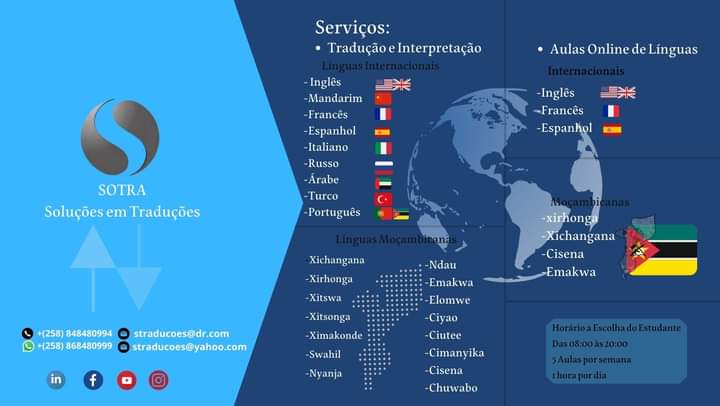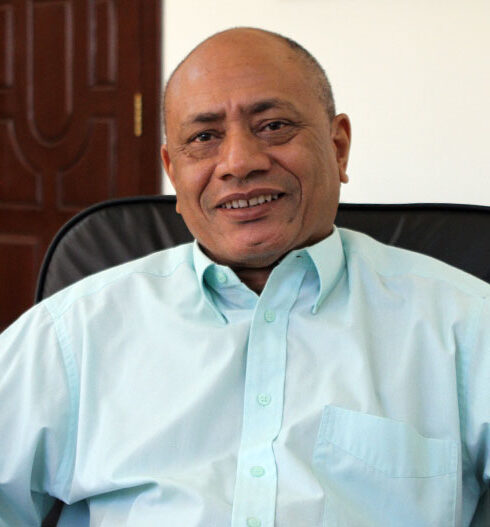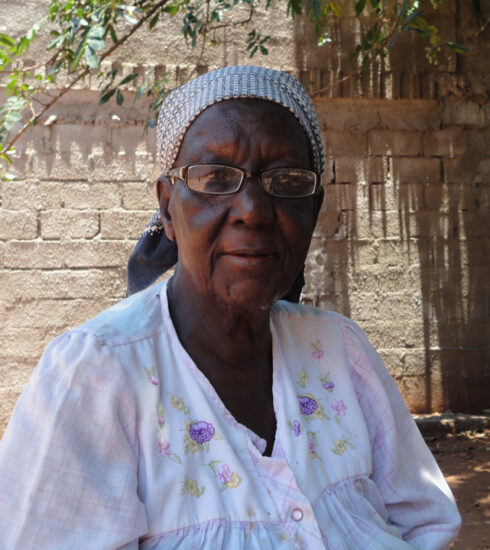
Lourenço do Rosário
Lourenço Joaquim da Costa Rosário was born in Marromeu, Sofala province, in 1949, when Mozambique was still a Portuguese colony. He lived in Marromeu until the age of six. His father was an agricultural foreman and commanded the sugarcane cutters at harvest time or directed the preparation of the land for the plantation.
At the age of eight, Lourenço and his father immigrated to Malawi where he continued with his studies. However, Lourenço only stayed in Malawi for two years, as his father realized that he couldn’t continue to study in the English system and sent him back to Luabo, Zambézia.
Between 1970 and 1973, Lourenço fulfilled the military service under the Portuguese regime. Then he went to Maputo, where he began teaching at Escola Preparatória do Noroeste. Lourenço also had the opportunity to work in a bank for a salary of 12,000 escudos, however, he preferred to teach for 10,000 escudos.
With the Revolution of April 25, 1974, which brought down the Salazar regime in Portugal, many Portuguese left Mozambique and returned to Portugal, including teachers? It was in that context when Lourenço was transferred to teach at the current Josina Machel Secondary School, where after the proclamation of the Independence he was appointed president of the School’s board of directors, which at that time had about 6,000 students.
Lourenço directed the school between 1975 and 1977. Since the country had few qualified staff he was transferred to Eduardo Mondlane University (UEM), even though had a bachelor degree. Lourenço worked at the University from 1977 to 1979. Then he moved to Centro 8 de Março, where he was a director until 1982.
It was during that time that Lourenço had the opportunity to go to Portugal as there were scholarships and he was part of a group of five bachelors. Lourenço was chosen head of the group to go to Portugal to negotiate with Gulbenkian the granting of scholarships in 1980. It happened that, Lourenço won three scholarships for Portugal and two for England; however, he decided to go to Portugal.

this text was translated by SOTRA
When Lourenço completed his degree (Languages and Modern Literature), his wife who was a Portuguese refused to return to Mozambique. So Lourenço sent a letter to the Rector of UEM, explaining his situation and asking for two months to think. The Rector thought that Lourenço was preparing himself not to come back and fired him. At that time, Mozambique was going through a difficult time. The 1980s decade was considered a hungry period in the country and needed staff to help Mozambique overcome that situation.
After being fired, Lourenço received an invitation from Nova de Lisboa University to teach which was accepted. When the former President of Mozambique, Samora Machel, traveled to Lisbon on a work visit, Lourenço took the opportunity to speak with the Minister of Education, Graça Machel to explain what had happened.
In 1987, Lourenço obtained his PhD in African Literature from the University of Coimbra in Portugal. In the following year, Lourenço returns to Mozambique and begins teaching as a visitor at UEM, by the invitation of the Rector Rui Baltazar. In 1994, he ended up returning permanently.
Later on, the former President of the Republic, Joaquim Chissano, invited him to be president of the Portuguese Language Bibliographic Fund (FBLP). At that time, Lourenço do Rosário sought to fulfil his dream of creating a higher education institution in Mozambique.
Firstly, Lourenço spoke to Chissano, who told him that he had all his support but he couldn’t help him financially. Then Lourenço talked to the Rectorof UEM, Narciso Matos. While Lourenço chaired the FBLP he created the Instituto Superior Politécnico e Universitário (ISPU), which is now called A Politécnica University, one of the major private educational institutions in Mozambique.
Lourenço do Rosário has been lecturing in several international renowned higher education institutions such as, among others, the University of Hamburg in Germany; University of Milan, Italy; Federal University of Minas Gerais, Brazil; and Nova de Lisboa University. In addition, Lourenço is the Rector of A Poliécnica University and currently chairs the National Forum of the African Peer Review Mechanism (MARP).









